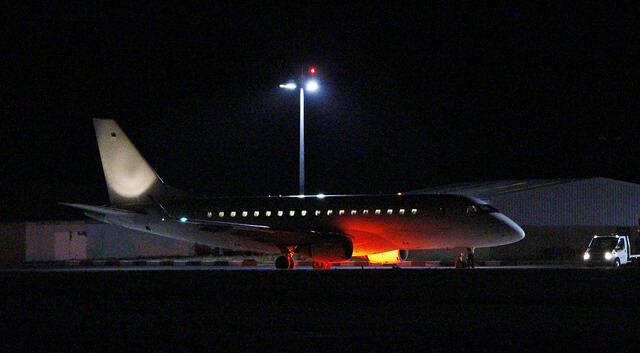A serious incident reported by independent observers during a Frontex facilitated deportation flight from Germany to Afghanistan in August 2018 was not included in the internal report from the EU Border and Coast Guard Agency (Frontex). The modest number of incidents reported has generated questions about the efficiency of internal reporting.
Independent observers of the European Committee for the Prevention of Torture and Inhuman or Degrading Treatment or Punishment (CPT) under the Strasbourg-based Council of Europe provided a detailed description of an escorted deportation flight of two rejected asylum seekers from Germany to Afghanistan on August 14 last year.
The account includes the following observations: “when the first escort officer from the back-up team put his arm around the returnee’s neck, the returnee started struggling to breath and became even more agitated, given that the pressure applied around his throat obstructed his respiratory tract momentarily” and “each time the sixth escort officer applied pressure to squeeze the returnee’s genitals, he physically reacted by becoming more agitated”. However, in its internal report covering the last half of 2018 including the flight from Germany on August 14, Frontex, which coordinated and partly financed the flight as part of its broader mandate, made no reference to the episode.
The reports are an internal mechanism, and one of the main tools for Frontex to monitor how it respects fundamental rights. All participants in Frontex operational activities are responsible for immediately reporting any incident that could affect the Agency’s activities, having special regard to fundamental rights violations.
According to Markus Jaeger from the Council of Europe and an official advisor to the Frontex management board: “The internal system of Frontex produces close to nil reports on serious incidents, in other words, the internal system of Frontex, says there is never a human rights incident.” Jaeger sees the underreporting in the context of Frontex’s pool of monitors being overstretched. The monitoring of forced deportation is a requirement under the 2016 European Border and Coast Guard Regulation and the 2008 Return Directive.
For further information:
- ECRE, German Pilots Prevent 506 Deportations Amid Concerns over Rights Violations in Removal Procedures, May 2019
Photo: (CC) Ronnie Robertson, January 2018
This article appeared in the ECRE Weekly Bulletin . You can subscribe to the Weekly Bulletin here.

